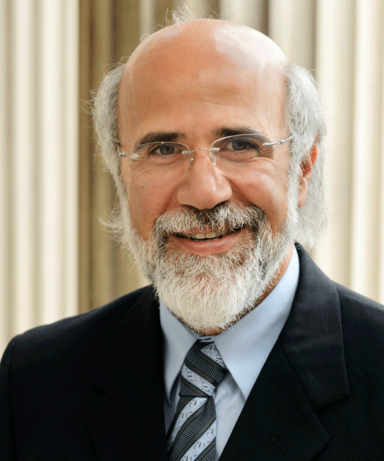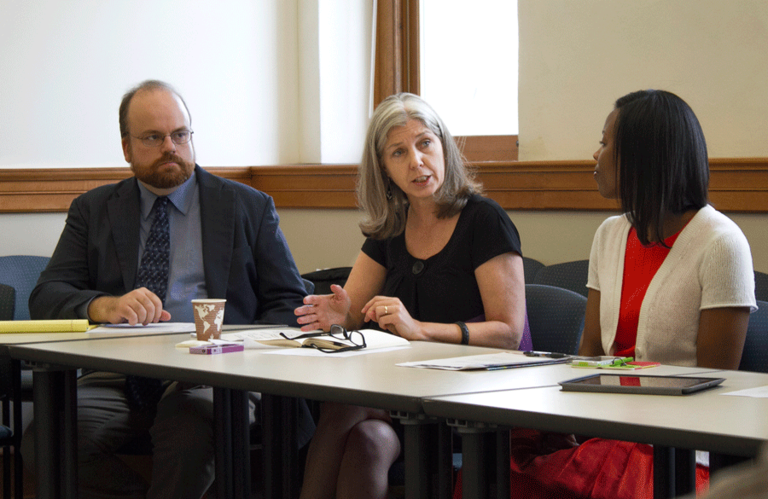When University of Iowa Vice President for Research Dan Reed says, “The humanities are an essential component of the University of Iowa’s institutional identity,” it should come as no surprise.

And, it should come as no surprise when Reed and leaders in the College of Liberal Arts and Sciences (CLAS) take action, such as the recent creation of the Humanities Advisory Board. The 14-member board will identify opportunities for collaboration among humanities scholars and departments, in addition to possible partnerships between humanities faculty and their colleagues in the sciences and arts; find and provide resources (financial, technical, and otherwise) to facilitate those collaborations; and devise ways to promote humanities scholarship both on campus and to external audiences.

The board also will serve as a direct line of communication between faculty in humanities' disciplines and the UI administration. “Our objective,” says CLAS Dean Chaden Djalali, “is to provide a formal platform to enhance consultation to the dean’s and vice president’s offices and, perhaps more important, to stimulate interaction and collaboration among the faculty.”
At its first meeting earlier this month, members discussed two recently issued reports on the state of the humanities in the United States, "The Heart of the Matter" report and the "Mapping the Future" report. The board also assessed humanities support at the UI and talked about visibility, communication, and teaching initiatives.
Teresa Mangum, director of the Obermann Center for Advanced Studies and board co-chair, says the discussion focused on teaching and funding. "They were brimming with ideas about ways to share our scholarship with students, ways to involve them in digital public humanities research with us, and new possibilities for courses and team teaching,” she says.

Mangum adds one of the first projects is to create a web portal similar to the Arts Iowa website that will showcase humanities research and programming on campus. "There’s such exciting work going on here, but it’s very easy for faculty to miss because they’re busy with their own work in their own departments," she says.
Craig Gibson, classics professor, is the board's other co-chair. Remaining members are:
- Russell Ganim, professor, World Languages, Literatures and Cultures
- Ali Hasan, assistant professor, Philosophy
- Lena Hill, associate professor, English
- Omar Valerio-Jiménez, associate professor, History
- Rebekah Kowal, associate professor, Dance
- Christopher Merrill, professor, English and director of the International Writing Program
- Kristy Nabhan-Warren, associate professor, Religious Studies
- Glenn Penny, associate professor, History
- Jonathan Wilcox, professor, English
The three ex-officio members are Joe Kearney, associate dean for research in CLAS; Tom Rice, associate provost; and Ann Ricketts, assistant vice president for research.